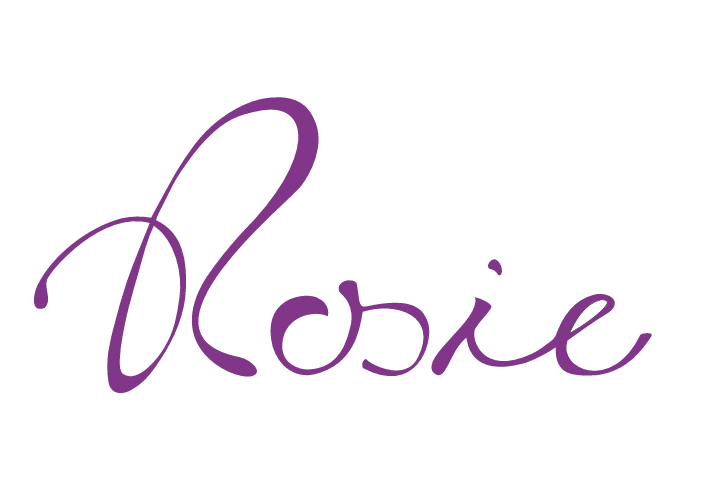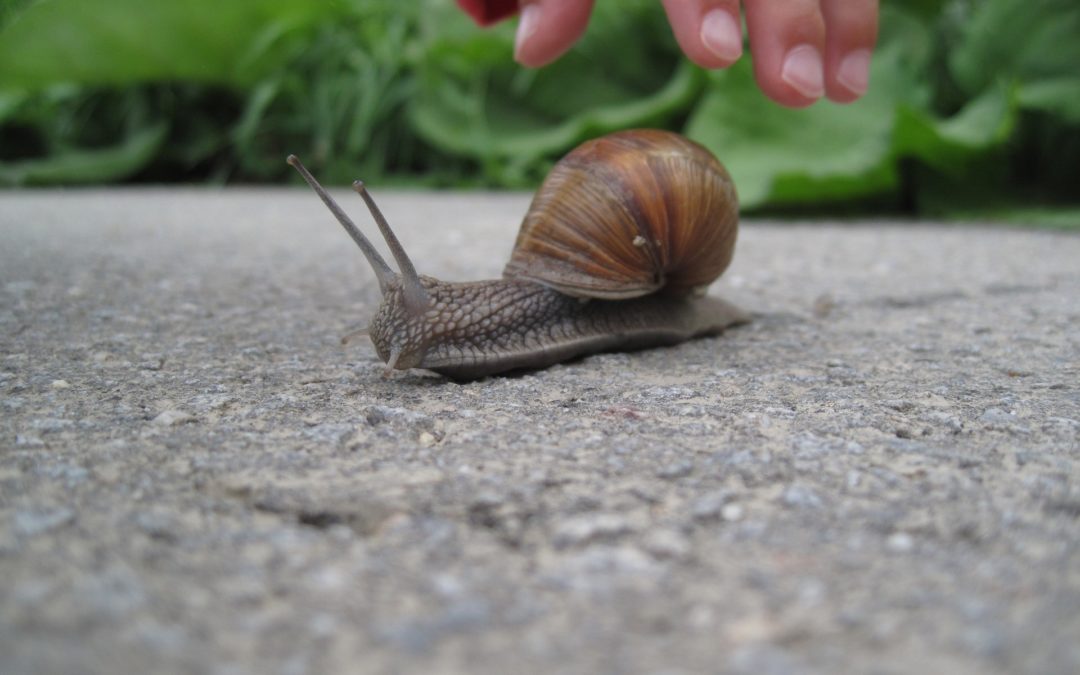When I was six, Mum and Dad were building a house and for a year we all piled-in to live with Grandma and Grandpa in country South Australia. Grandma loved roses, although growing them was a bit of a feat in SA summers. Looking back, I suspect the roses might have been a bit dry, and maybe scaly. They were most certainly snaily.
But I loved that. I spent hours crawling back and forth on the concrete path between the two rows of her beloved rose bushes. I was following trails and adventures.
I remember my interactions with the engineers of the silver highways. If I touched the snails’ antennae vigorously, they would rapidly pull those little horns in, and their whole bodies would also disappear into their shells at top snail-speed.
If I touched their tentacles with less energy, they would withdraw only the little horns and not pull in their bodies. After a while they would put the antennae out again.
If I touched the tentacles very, very lightly, the little shell-dwellers would retract the antennae just a tiny bit. And then soon put them out again to full length.
And if I stayed there all afternoon, touching lightly, the snails would just go about their business.
I might not have had the word ‘trust’ in my vocabulary then (I certainly didn’t have ‘habituation’) but I can now see that this is what I was learning about.
I think people can be a bit like snails.
People are covered in invisible tentacles, feeling their worlds. They feel the connection, the emotional valence in communication, the complication of meanings in words. They sense safety, danger, and where trust can be placed. They’re hardwired to learned experiences, which calibrates the strength of their reactions to present experiences.
You can inadvertently touch one or many of the invisible tentacles of others. You can be swirling or strolling in your own life and have no idea that you said or did something that brushed the sensitive antennae of another. But shwoosh – in it goes.
The other person might feel injured or made afraid. It might not feel that way to you. You might be surprised by your apparent role. At other times, you are the one injured or afraid; and someone else is the surprised one.
But what might happen if we were to ‘stay all afternoon’? Watching and approaching lightly. Strengthening trust and resilience. Opening non-judgmental connection about touch points – their sensitivities and their stories. We could gain shared understanding. Rather than shrink or shout. We could know the silver highway of another. Adventures could be taken!
Restoration can be messy
There’s magic in the mess of connection that restores, that swells trust, and widens who and how we are.
Criminologist Nils Christie wrote about this in a landmark 1977 paper. He described conflicts as the important property of individuals and communities. Conflicts, small and large, contain riches-in-potential. Relational riches that emerge from being supported to make repair. Restoration and repair can feel hard; because the rupture itself is unpleasant. But sitting with the discomfort and repairing what we can increases skill, competence and insight. It pays-off well beyond that encounter. It acknowledges the complexity and unique configurations of conflictual situations. It releases knowledge and resources that may transform that complexity. Nils wrote that achieving restoration is intense; that it takes time.
The time it takes for transformational repair has been a barrier to system-wide use of restorative practices. Particularly in the justice system that Christie was writing about. But situations that keep us in our shells or make us hit out, steal our time for joy and productivity anyway. But badly.
We could invest intense time in repair and restoration. The nimbleness of 2020 has shown us that we could easily do it if we want to. Refreshed ways of valuing the benefits of invested time could manifest Christie’s vision of widespread restorative responses in our institutions. And we all, simultaneously the instigators and beneficiaries, could go about our business on the silver highways of our freedom. Pokes and prods would be welcome. We’d know them as painful, yes, but also as magic hits for trust and growth.
Perhaps it is worth staying all afternoon.
A version of this article was published in The Mercury in September 2020.

